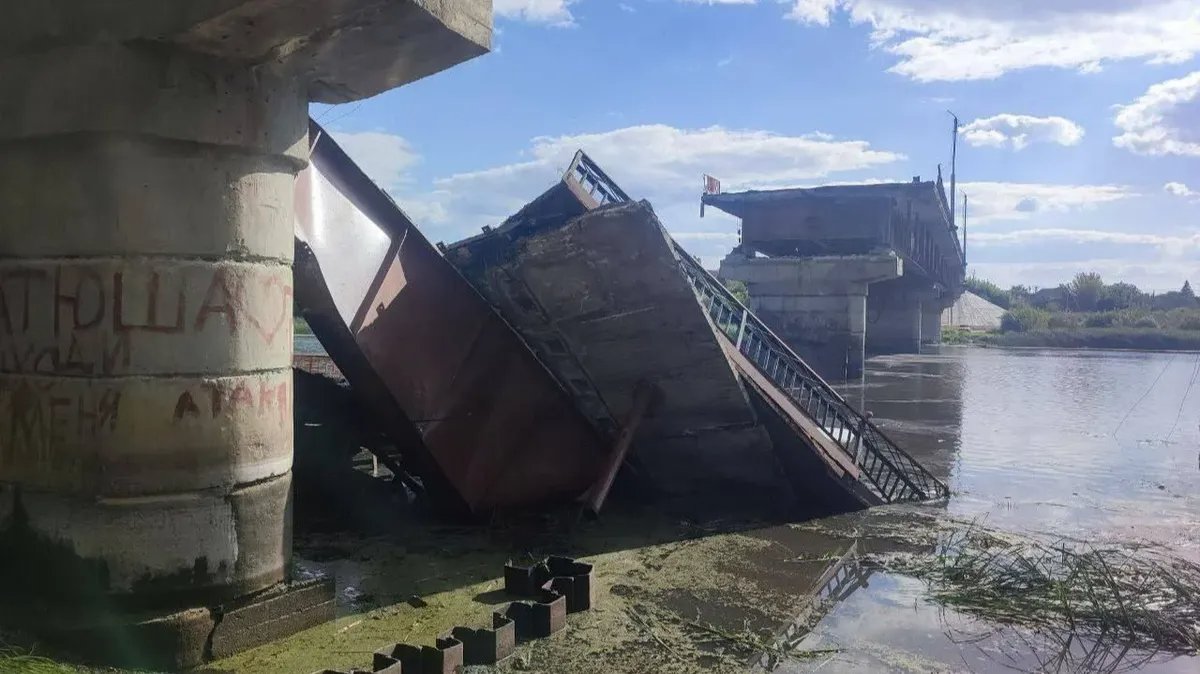
The bridge over the Seym River, Kursk region, Russia. Photo: social media.
The surprise Ukrainian incursion into Russian territory has derailed secret Qatari-led efforts to negotiate a partial ceasefire between the two countries, The Washington Post reported on Saturday.
Both Ukraine and Russia were set to send their delegations to Doha in August “to negotiate a landmark agreement halting strikes on energy and power infrastructure on both sides”, the newspaper wrote, citing diplomatic sources, adding that the “partial ceasefire” would have “offered a reprieve” for both sides.
But the talks were postponed after the Armed Forces of Ukraine (AFU) breached the border into western Russia’s Kursk region on 6 August, which the Moscow delegation described as “an escalation”, an unnamed diplomat told The Washington Post, adding that Doha had not been informed of Kyiv’s cross-border offensive in advance.
Ukrainian forces destroyed a strategically important bridge in Russia’s Kursk region on Friday, undermining claims that the unprecedented incursion was beginning to slow. The bridge, which crossed the Seym River in the Kursk region’s Glushkovsky district, was blown up by the AFU, a regional law enforcement source told state news agency TASS on Friday, adding that the evacuation of civilians from neighbouring settlements had become “complicated”as a result.
Confirming that the bridge had been completely destroyed and claiming that “volunteers who were helping local residents evacuate” had been killed in the strike, Russian Foreign Ministry spokesperson Maria Zakharova said the AFU had likely used a US-made High Mobility Artillery Rocket System (HIMARS) to attack the bridge.
The Seym bridge was the main route for delivering ammunition and food for Russian troops in the area, independent media outlet IStories reported, citing Russian pro-war bloggers who said the attack could signal the start of an AFU incursion into the Glushkovsky district, which borders Ukraine.
On Thursday, acting Kursk Governor Alexey Smirnov announced the “mandatory evacuation” of the Glushkovsky district, the first non-voluntary evacuation order yet to have been issued by the Russian authorities in the region.
